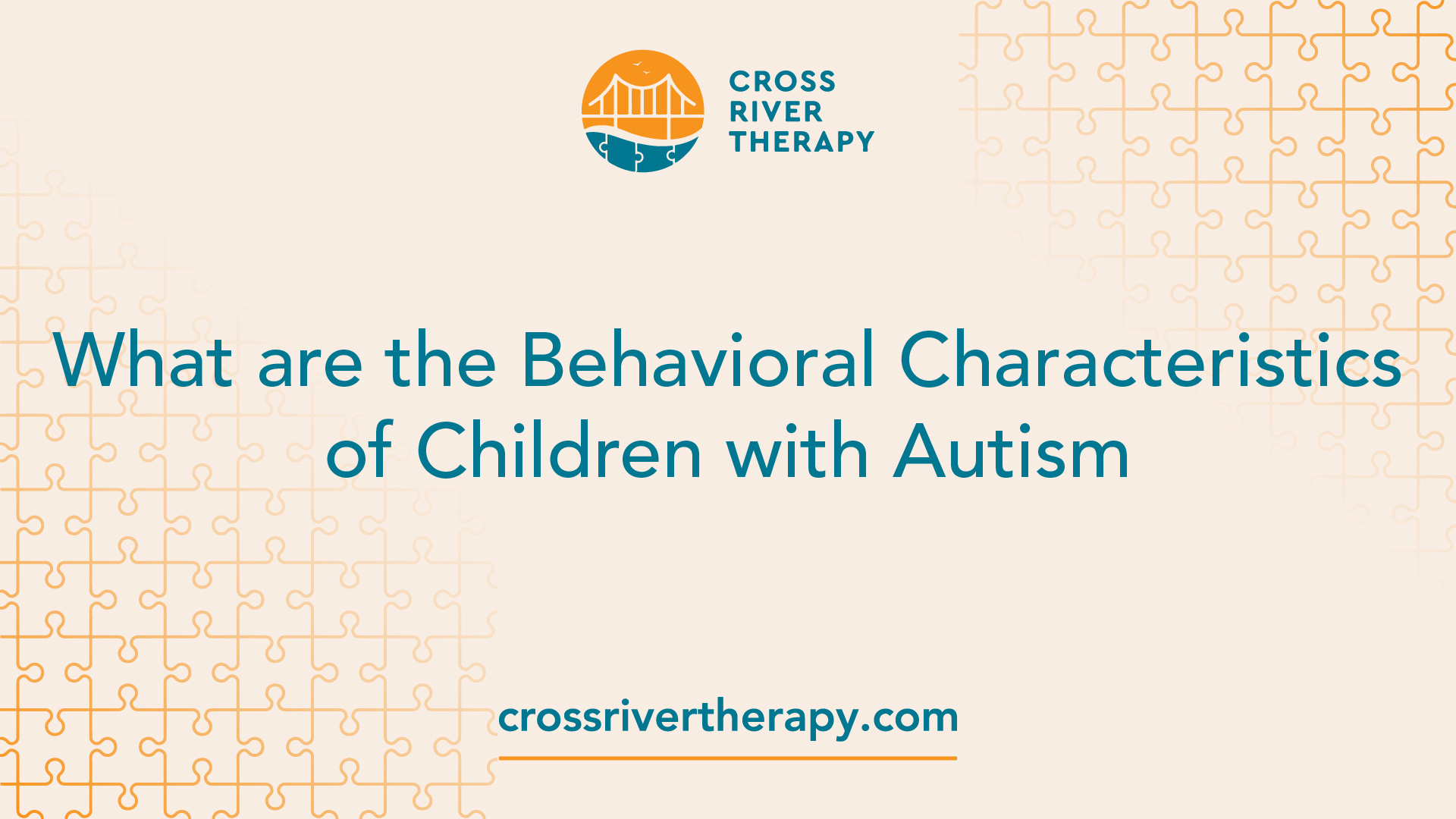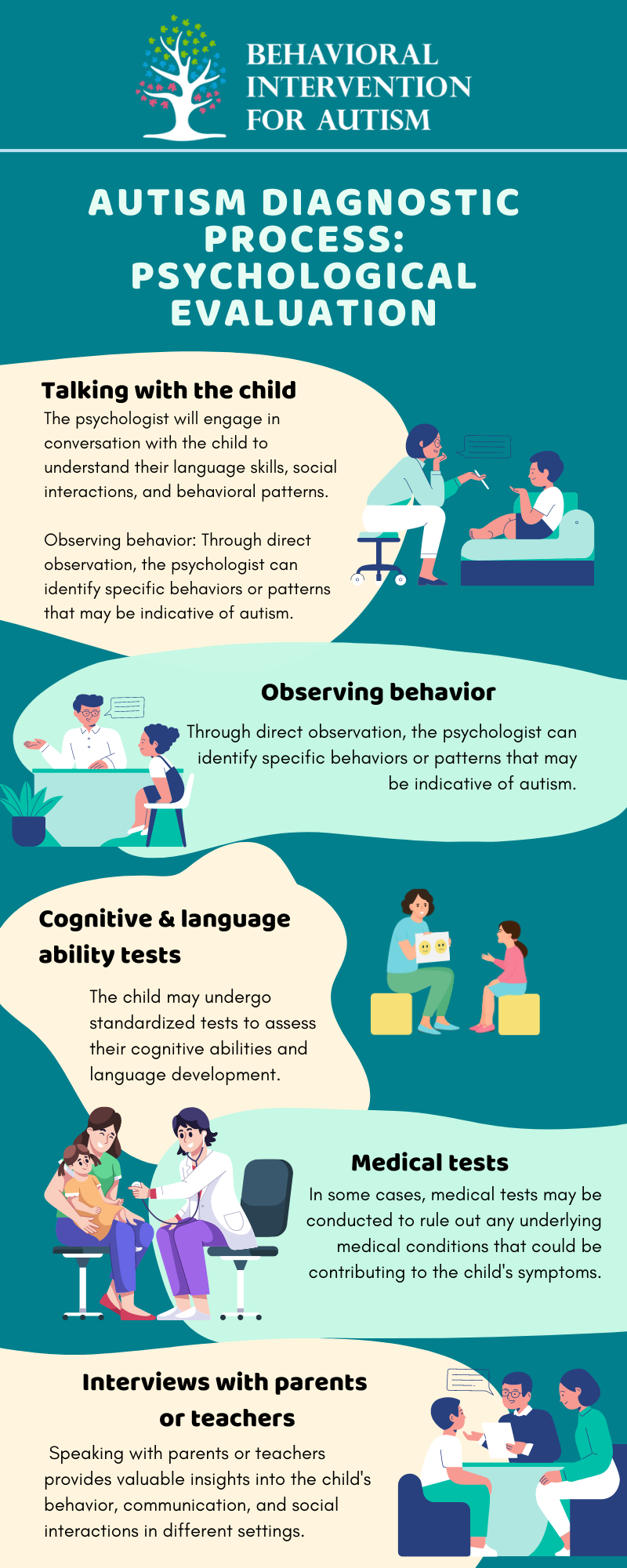Unique abilities often seen by an experienced Autism Therapist
Unique abilities often seen by an experienced Autism Therapist
Blog Article
Secret Symptoms And Signs to Identify in People With Behavior Autism
When you run into someone with behavioral autism, recognizing essential symptoms and signs is vital. You may observe obstacles in social communications and communication, along with a solid requirement for routines. In addition, sensory sensitivities can bring about frustrating experiences. Recognizing these qualities can boost your assistance and treatments, but there's more to uncover about just how these habits manifest in everyday scenarios. Allow's explore what these signs truly appear like.
Challenges in Social Communications
When you connect with a person on the autism spectrum, you may see they battle with social hints and communication. These challenges can make social communications feel overwhelming for them.
When they do engage, they may speak concerning their passions in terrific information without seeing if you're interested. Recognizing these challenges can help you approach interactions with empathy and patience, fostering a much more comfy atmosphere for both of you.
Trouble With Verbal and Non-Verbal Communication

Non-verbal interaction can be even more tough. You may see an absence of eye get in touch with or limited use motions, which can make interactions really feel uncomfortable. Face expressions might not constantly line up with the discussion, causing complication concerning their feelings. Identifying these signs is crucial, as it helps you far better support and involve with individuals on the autism range. By understanding their interaction difficulties, you can cultivate much more purposeful links and supply an extra helpful setting.
Repeated Actions and Routines
Communication difficulties often go along with various other signs of autism, such as repetitive habits and a solid choice for regimens. You may discover that people with autism typically involve in particular, repetitive activities, like hand-flapping, shaking, or duplicating expressions. These behaviors can supply comfort and a sense of control in an usually overwhelming world.
Regimens are similarly crucial; several people prosper when they comply with an organized timetable. You may discover that modifications to these routines can lead to significant distress. For example, if they have a day-to-day ritual of eating morning meal at a certain time or complying with a particular path to institution, any disruption can cause anxiety.
Identifying these patterns aids you comprehend their habits and offer assistance. By accommodating their requirement for regular and enabling repetitive activities, you can create a more comfy atmosphere that eases their challenges.
Sensory Sensitivities

Common Sensory Triggers
Sensory sensitivities can significantly affect every day life for people with autism, as certain stimuli commonly trigger frustrating reactions. Typical sensory triggers include loud noises, intense lights, and solid smells. You may see that sudden noises, like sirens or alarm systems, cause anxiety or distress. Fluorescent lighting in stores can really feel severe and unpleasant. Appearances can additionally play a significant role; rough textiles or specific food structures may be unbearable for you. In addition, crowded places can bewilder your senses, making it tough to unwind or focus. Recognizing these triggers can aid you handle your environment better. By being aware of what impacts you, you can take steps to lessen pain and improve your day-to-day experiences.
Behavioral Feedbacks Discussed
Understanding your behavioral responses to sensory level of sensitivities is essential, as they often reveal exactly how you connect with the globe. You may additionally find yourself looking for particular sensory experiences, like deep pressure or peaceful environments, to here help ground yourself. Identifying these patterns assists you recognize your demands far better and can assist just how you connect them to others.
Coping Approaches Introduction
Recognizing your sensory sensitivities is simply the first action; now it's time to explore coping strategies that can assist you take care of those experiences successfully. Start by developing a sensory toolkit customized to your requirements. Establishing a structured routine can additionally supply predictability, minimizing anxiety around sensory overload.
Restricted Rate Of Interests and Focus
While many people develop a large range of passions, those with autism commonly demonstrate restricted passions and an extreme concentrate on specific subjects. You could see that somebody with autism can spend hours delving right into their favored subject, whether it's a certain sort of train, a certain motion picture, or a scientific concept. This intense emphasis isn't simply a pastime; it can end up being a main part of their identity and social interactions.
You might discover that discussions revolve around these interests, and they may struggle to take part in broader topics. For them, these focused passions give convenience and a sense of mastery. While it is very important to motivate exploration of new topics, respecting their interests is equally essential. By recognizing and acknowledging these limited interests, you can cultivate an encouraging setting where they feel valued and recognized, permitting even more purposeful connections and interactions.
Emotional Regulation Difficulties
Individuals with autism commonly face challenges in psychological regulation, which can be affected by their intense concentrate on certain passions. You could observe that when a person is deeply taken part in a favored task, they can experience strong feelings, whether enjoyment or disappointment. This strength occasionally makes it hard for them to change gears or manage their feelings when things don't go as intended.

Irregularity in Developing Turning Points
When it concerns developmental turning points, you'll observe that people with autism commonly show a large range of irregularity. Some may strike landmarks in a timely manner, while others might hang back or development at a various speed. For circumstances, you might see a kid master language skills however have problem with social communications. This inconsistency can be complex, as standard benchmarks don't constantly apply.
It's necessary to identify that each person's trip is distinct. Some might establish complicated skills early, only to deal with obstacles in the future. Others might take longer to achieve standard landmarks however after that grow in particular areas. Observing these patterns can assist you comprehend their strengths and requires much better.
Frequently Asked Inquiries
How Is Autism Identified in Children and Grownups?
To diagnose autism in grownups and kids, professionals evaluate actions, communication abilities, and social interactions. They usually use standard tests, meetings, and monitorings to identify if a specific fulfills the standards for autism range disorder.
Are There Various Sorts Of Autism Range Disorders?
Yes, there are different kinds of autism range problems, including Asperger's syndrome and pervasive developmental disorder-not otherwise specified. Each type differs in intensity and qualities, so comprehending these distinctions can aid you far better support people with autism.
What Treatments Work for Individuals With Autism?
When thinking about reliable treatments for people with autism, you'll discover options like Applied Behavior Analysis, speech therapy, and work-related therapy. Each strategy can assist boost communication, social skills, and daily operating tailored to specific demands.
Can People With Autism Lead Independent Lives?
Yes, people with autism can lead independent lives. With the ideal support, abilities training, and resources, you can assist them establish self-sufficiency, handle day-to-day tasks, and grow in various environments, fostering their freedom.
Exactly How Can Families Assistance Liked Ones With Autism?
You can sustain your loved ones with autism by creating an organized atmosphere, encouraging their rate of interests, exercising patience, fostering communication, and promoting social abilities. Commemorate their success, no matter exactly how little, and build a supportive community.
Although several people on the autism spectrum can utilize and understand language, they often encounter substantial obstacles with both spoken and non-verbal interaction. Identifying these signs is important, as it aids you better assistance and engage with individuals on the autism range. You could observe that individuals with autism typically engage in particular, repeated actions, like hand-flapping, rocking, or repeating expressions.Sensory sensitivities can substantially impact daily life for individuals with autism, as particular stimuli often set off overwhelming responses.When it comes to developmental landmarks, you'll observe that individuals with autism commonly show a large array of variability.
Report this page